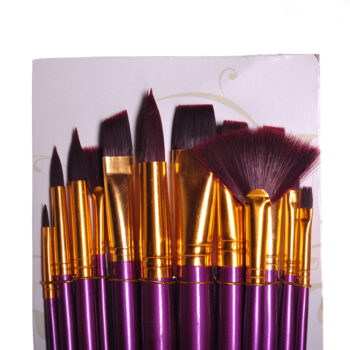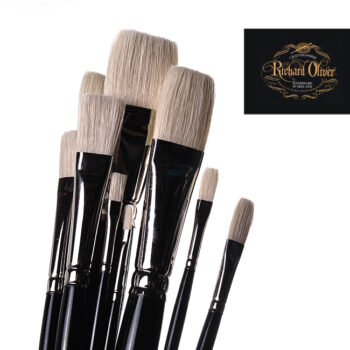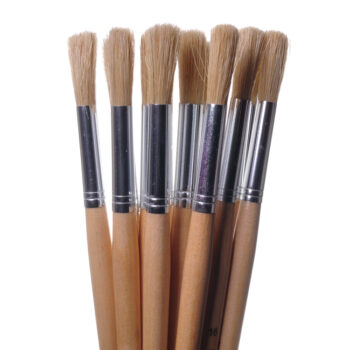Brushes
Choosing the right brushes:
Brushes for artists are generally made from natural or synthetic bristles or fibres. Bristle is firmer and courser, synthetic fibre is generally smoother and softer. Bristle is traditionally used for oil paint and acrylic paint when applying thickly. Bristle brushes are also suitable for poster paint and tempera with younger children as they are more durable and will take hard use. Synthetic fibre and sable (natural) brushes are used for watercolour, ink, gouache, acrylic ink and so on. Long-handled brushes are typically held horizontally while working on an upright surface such as a vertical canvas, most usually as when using oil paint or acrylic paint. Short-handled brushes are typically used for flat or slightly inclined work surfaces, such as watercolour painting, illustrating and ink work, and model painting, clay and projects.
The styles of brush tip seen most commonly are:
- Round: pointed tip for large and small work.
- Flat: for spreading paint quickly and evenly over a surface.
- Bright: shorter than flats, give a patchwork look.
- Filbert: flat brushes with domed ends.
- Fan: for blending broad areas of paint.
- Rigger: Long, smooth fibres for lining with inks and watercolour.
Choosing the right brushes:
Brushes for artists are generally made from natural or synthetic bristles or fibres. Bristle is firmer and courser, synthetic fibre is generally smoother and softer. Bristle is traditionally used for oil paint and acrylic paint when applying thickly. Bristle brushes are also suitable for poster paint and tempera with younger children as they are more durable and will take hard use. Synthetic fibre and sable (natural) brushes are used for watercolour, ink, gouache, acrylic ink and so on. Long-handled brushes are typically held horizontally while working on an upright surface such as a vertical canvas, most usually as when using oil paint or acrylic paint. Short-handled brushes are typically used for flat or slightly inclined work surfaces, such as watercolour painting, illustrating and ink work, and model painting, clay and projects.
The styles of brush tip seen most commonly are:
- Round: pointed tip for large and small work.
- Flat: for spreading paint quickly and evenly over a surface.
- Bright: shorter than flats, give a patchwork look.
- Filbert: flat brushes with domed ends.
- Fan: for blending broad areas of paint.
- Rigger: Long, smooth fibres for lining with inks and watercolour.

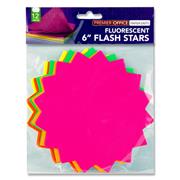 Fluorescent Flash Stars 6" size - Pack of 12
Fluorescent Flash Stars 6" size - Pack of 12 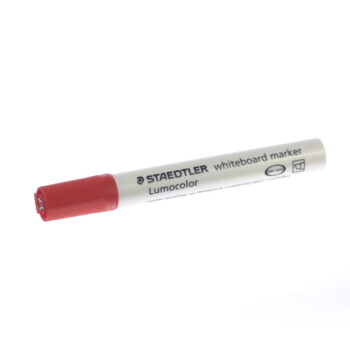 STAEDTLER Whiteboard Marker (Bullet Tip) - Red
STAEDTLER Whiteboard Marker (Bullet Tip) - Red 